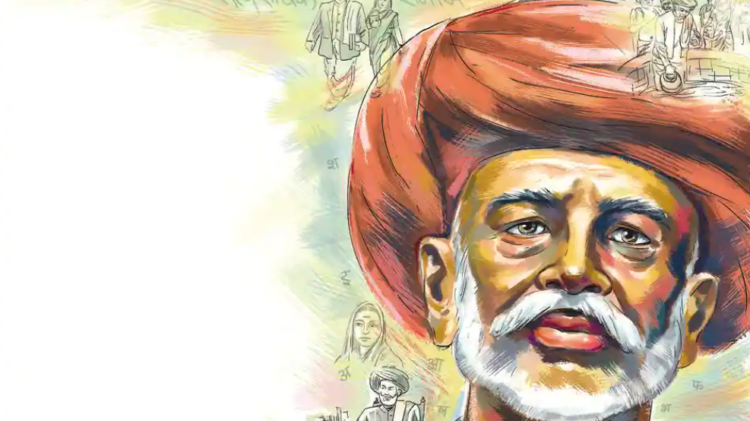By Vikas Parasram Meshram
Mahatma Phule is one of the pioneers of social revolution in the country who sacrificed his life for the cause of human equality by condemning caste and religion.
November 28, 1890 is the anniversary of the great Indian thinker, social worker, philosopher and writer Jyotirao Govindrao Phule, who is known throughout the country for his social contributions and for the welfare of the society. Born in the OBC community, Mahatma Phule was a caste gardener, his full name was Jyotirao Govindrao Gorhe, later his name was changed to Jyotirao Govindrao Phule. Jyotiba Phule wrote a number of books on slavery, the third gem, the povada of Chhatrapati Shivaji Raja Bhonsale, and the relief of farmers. His book Public Truth Religion was published after his death in 1891. Happened. Jyotirao Phule founded Satyashodhak Samaj on 24th September 1873. He did many things for the welfare of women and the weak. Always working for the education of disadvantaged women and all sections of the society. He was a staunch supporter of women’s education.
Women who have been deprived of education for thousands of years continue to be inspired by education. That is why he is called the patron saint of education in India. Along with his wife Savitribai, he taught in the society. Savitribai became the first female teacher in India. He also had to face exclusion from society. Mahatma Phule was a staunch opponent of casteism.
Mahatma Phule was talking about human society, in which humanity and equality, education for all, rights of all should be ensured. Continued efforts to improve the condition of farmers. To improve the condition of women and for women’s education, a school was opened in 1848, which was the first such school in the country. One can only guess what will be the status of women’s education in the country 170 years ago, when there were no teachers available to teach girls at that time, when he made his wife Savitri Phule a teacher. He then set up three more schools, saying that men and women are equal, so why discriminate?
Even after 72 years of the Constitution, the status of women is weak. Despite many laws for women, very few women are aware of them. Even in the Supreme Court, there are only 3 women judges and 11% are women. Member of Lok Sabha. The same cabinet. There are only 8 women ministers in the ministry. Which is only 15 percent. In the Lok Sabha elections, on the basis of male-female sex ratio, 20 per cent women voted less than men, which is 65 million. According to Babasaheb, Mahatma Phule was one of the greatest Shudras in modern India who made backward caste Hindus realize that they were enslaved by the next caste Hindus. Jotiba Phule was a staunch watchdog of the society. She will always be remembered.
There are two important aspects of Mahatma Phule’s thought. It needs to be understood. For this, he suggested the path of education for all. He intended that an educated person of understanding would develop it along with another. For this, he emphasized the importance of education. ‘The vote went without knowledge, The policy is gone without a vote, Speed without policy, Gone without speed, Shudra without finances, An avidya did so much mischief ‘ He believed that through this idea, every person would come forward through education to fight for rights and inequality to establish social equality.
The values that mothers inculcate in their children are the seeds of their future, so girls need to be educated. At that time the walls of caste system were very high. At a time when the path of education for Dalits and women was closed, Mahatma Phule paved the way for all Bahujan Din by creating a path of education for the Dalit community. Due to the struggle and organization of Mahatma Phule, the then government enacted the Agriculture Act, but even today the condition of farmers is bad. They built big dams in the name of irrigation, but farmers do not get their water Today we are far from that It has been almost 130 years since the death of Mahatma Phule.
But even today, their thinking has to be taken into account while formulating a plan for the transformation of society in Maharashtra. This is the greatness of that thought. But, even after so many years, the social equality meant for flowers still does not seem to have been established. Social inequality, religious restrictions, essays are still seen in the society. Therefore, Mahatma Phule’s idea of social equality needs to be taken to the grassroots. This will create a society based on the social equality that Mahatma Phule intended.







